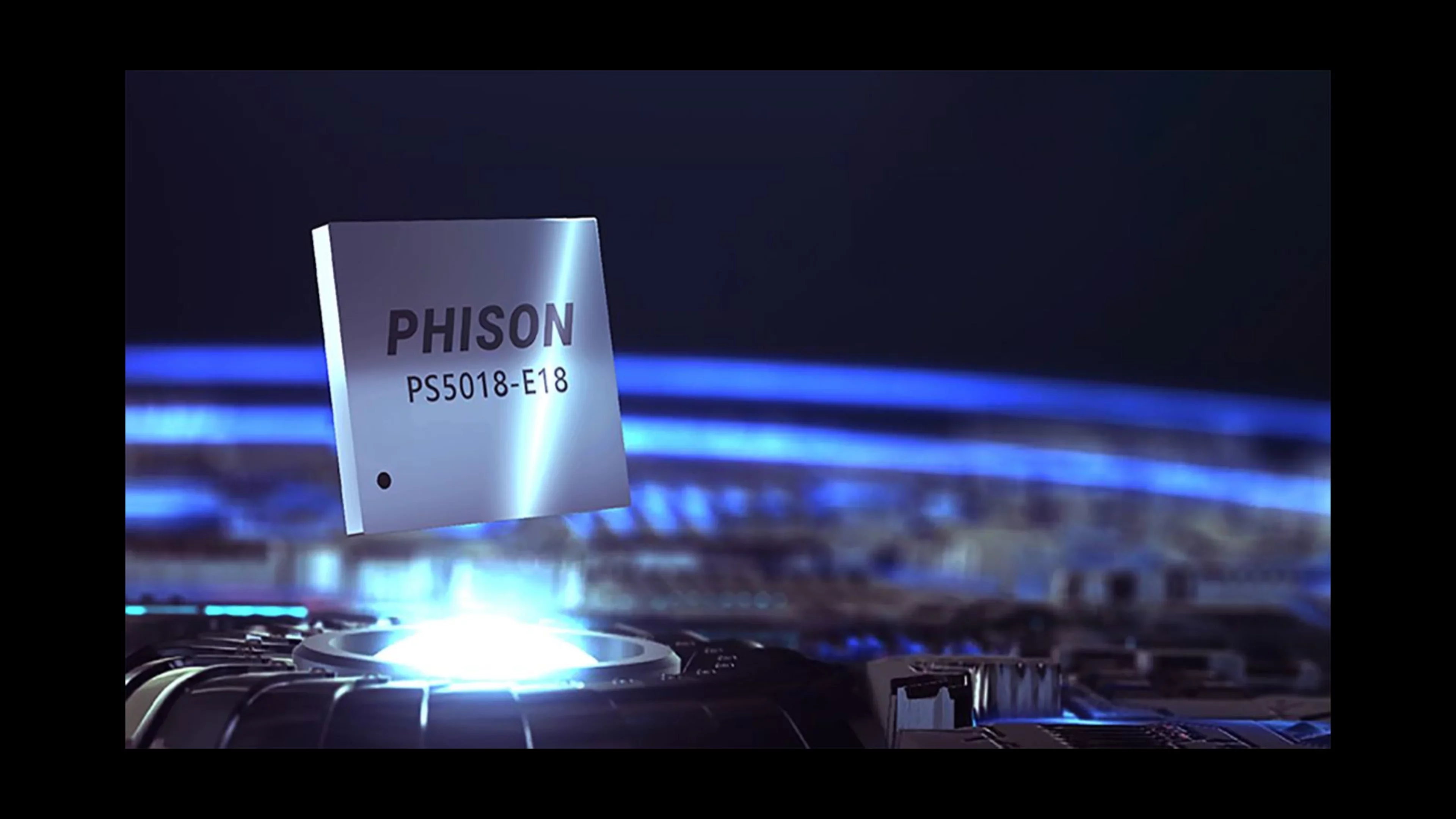
Phison's New Cutting-Edge SSD Controllers
Introduction
Phison Electronics, a global leader in NAND flash controllers and storage solutions, has once again pushed the boundaries of storage technology with its latest lineup of SSD controllers. Unveiled at CES 2025, these innovations cater to both mainstream consumers and enterprise users, offering unprecedented speeds, efficiency, and scalability. For tech enthusiasts and DIY builders, understanding these advancements is critical for optimizing high-performance systems. This blog post explores Phison’s newest controllers, their features, and their implications for the storage industry.
Overview of Phison’s Latest SSD Controllers
Phison’s CES 2025 showcase highlighted three groundbreaking controllers: the PS5028-E28, PS5031-E31T, and PS2251-21 U21, alongside the enterprise-focused Pascari D205V SSD. Each targets specific market segments, from flagship gaming rigs to portable storage and data centers.
PS5028-E28 PCIe Gen5 SSD Controller
The PS5028-E28 is Phison’s flagship PCIe Gen5 controller, built on TSMC’s 6nm process node. It delivers sequential read/write speeds of up to 14.5 GB/s, matching the theoretical maximum bandwidth of PCIe 5.0 x4 interfaces. Designed for high-end consumer SSDs and entry-level enterprise applications, it supports NAND flash with a 4200 MT/s interface and capacities up to 32TB.
PS5031-E31T PCIe Gen5 SSD Controller
Targeting the mainstream market, the E31T is the world’s first DRAM-less PCIe Gen5 controller capable of exceeding 10 GB/s sequential speeds. By eliminating DRAM, Phison reduces costs and power consumption without sacrificing performance. This controller is already powering Micron’s Crucial P510 SSD, offering a balance of speed and affordability.
PS2251-21 U21 USB4 SoC
The U21 is the first native USB4 system-on-chip (SoC), enabling 4 GB/s read/write speeds in portable devices. Its compact design and low power consumption make it ideal for external SSDs and Thunderbolt-compatible peripherals.
Pascari D205V Enterprise SSD
Phison’s Pascari D205V redefines enterprise storage with a 122.88TB capacity and sequential read speeds of 14,600 MB/s. Built for data centers, it combines massive scalability with PCIe Gen5 efficiency.
Key Features and Technological Advancements
6nm Manufacturing Process
The PS5028-E28’s 6nm architecture enhances energy efficiency and transistor density, enabling faster data processing while reducing heat generation. This is a significant leap from the 12nm nodes used in older controllers like the E18 and E26.
DRAM-Less Design
The E31T’s DRAM-less architecture leverages Host Memory Buffer (HMB) technology to borrow a small portion of the system’s RAM for flash translation layer operations. This reduces manufacturing costs by 15–20% compared to DRAM-equipped controllers.
Native USB4 Support
The U21’s USB4 integration ensures backward compatibility with Thunderbolt 3 and USB 3.2 devices while doubling bandwidth over previous standards. Its MagSafe-compatible reference design emphasizes durability and portability.
Compatibility and Use Cases
Gaming and Content Creation
The PS5028-E28 is tailored for gaming PCs and workstations requiring rapid asset loading and real-time rendering. Its compatibility with DirectStorage API ensures seamless integration with next-gen gaming ecosystems.
Budget-Conscious Builds
The E31T brings PCIe Gen5 performance to mid-range systems, making it ideal for users upgrading from SATA or PCIe Gen3 SSDs. Its low power draw also benefits laptops and small-form-factor PCs.
Enterprise and Data Centers
The Pascari D205V addresses the growing demand for high-capacity, low-latency storage in AI training and cloud computing. Its quad-port design allows simultaneous access for multiple users or applications.
Impact on the DIY and Consumer Markets
Phison’s controllers are poised to accelerate the adoption of PCIe Gen5 SSDs in DIY builds. The E28’s blistering speeds cater to enthusiasts seeking peak performance, while the E31T lowers the entry barrier for Gen5 adoption. Meanwhile, the U21 empowers creators with portable, high-speed storage solutions. For enterprise users, the D205V offers a future-proof solution for data-intensive workloads.
Conclusion
Phison’s latest SSD controllers represent a paradigm shift in storage technology, blending cutting-edge performance with practical affordability. Whether building a high-end gaming rig, upgrading a laptop, or managing enterprise infrastructure, these innovations provide tailored solutions for diverse needs. As PCIe Gen5 becomes mainstream, Phison’s advancements will likely set the benchmark for speed, efficiency, and scalability in the storage industry.
Works Cited
“CES 2025: Phison Unveils Lightning-Fast Gen5 Storage, Expanding Suite of High-Performance Solutions.” Phison Blog, 7 Jan. 2025, phisonblog.com/ces-2025-phison-unveils-lightning-fast-gen5-storage-expanding-suite-of-high-performance-solutions.
Tallis, Billy. “The Phison E12 Reference Design Preview: A Next-Gen NVMe SSD Controller.” AnandTech, 18 July 2018, anandtech.com/show/13080/the-phison-e12-nvme-ssd-controller-preview.
“Phison Unveils Next-Generation High-End PCIe 5.0 SSD Platform.” Tom’s Hardware, 8 Jan. 2025, tomshardware.com/pc-components/ssds/phison-unveils-next-generation-high-end-pcie-5-0-ssd-platform-ps5028-e28.